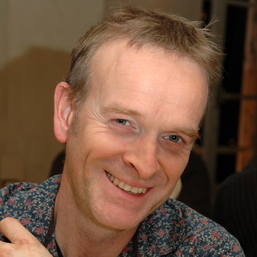
UvA moratorium delays energy transition and violates academic freedom
Thirty UvA professors and researchers oppose the UvA decision to impose a moratorium on new collaborative projects with the fossil fuel industry in an open letter. “Collaboration with a broad spectrum of private parties is precisely what is badly needed to realize the energy transition and achieve climate goals. We are also concerned about restrictions to our academic freedom,” says co-signatory Alfons Hoekstra.
Scientists, like many Dutch people, are deeply concerned about climate change and strongly support the much-needed energy transition and sustainability. We understand many people’s great frustration that despite the extreme urgency of this topic, rapid changes have failed to materialize and the share of renewable energy is currently stagnant at only 13 percent. Scientists are at the center of society and are working with heart and soul on solutions to the major challenges we face as a society. We also want to make a substantial contribution to the energy transition not just through research but by training young people to help bring about the energy transition in companies and institutions.
Ethical and legal
Underlying all successful scientific research at universities is academic freedom. Within applicable ethical and legal frameworks, scientists themselves choose the right projects and collaborative agreements to realize their research ambitions. The search for solutions to the climate problem and energy transition requires extensive collaboration, even with parties who, like our own organization, still have many steps to take in that regard. Independent science must lead the way when working together with companies at all times. This means that research results, regardless of their outcome, are published. It must be actively ensured that cooperation partners do not exert unwanted or direct influence.
Facts
With the moratorium, the university administration is responding to growing social unrest with the intent to formulate a clear vision of our university’s position in a dialogue with students and staff. Careful consideration of fact-based arguments will play a key role in this. As employees of the Science Faculty, we want to cooperate wholeheartedly in this process, but we are concerned about any limitations on academic freedom that this decision could entail.
Transitions are made together. In the process, new parties will emerge and existing parties will reform or lose importance. There are currently no ready-made solutions for many climate and energy problems, but scientists are searching for them in cooperation with social partners and the business community. Companies have extensive knowledge and facilities that are essential for applying the results of our research in practice on a large scale.
Shell
This is why we oppose excluding certain parties in advance, which we feel includes “Shell or similar parties.” There is always a need to discuss the content of specific projects. We also discuss content, with academic freedom as the starting point within a framework of ethical and legal standards and the applicable scientific code of conduct. We would be happy to engage with anyone who wants to know what that research entails and why we believe it can make a positive contribution to the major challenges faced by our society.
Government, science, and society all need partners for the energy transition. Focused collaboration with carefully considered goals is a more powerful action than excluding companies in advance. Only through intensive cooperation between knowledge institutions, large companies, SMEs, smart young start-ups, government, and civil organizations can much-desired and necessary major changes be made. We do not want to make such collaboration impossible in advance.
Signed: A group of concerned scientists and colleagues from the Science Faculty of the UvA in their personal capacity:
prof. dr. ir. Alfons Hoekstra
prof. dr. Carsten Dominik
prof. dr. Annemarie van Wezel
prof. dr. Wybren Jan Buma
dr. Chris Slootweg
dr. ir. Peter van der Donk
prof. dr. Joost Reek
prof. dr. Bas de Bruin
prof. dr. Eric Opdam
prof. dr. Arian van Asten
prof. dr. Andy Pimentel
prof. dr. Christof Monz
prof. dr. Michel Haring
prof. dr. Gerard Muyze
dr. Bob Pirok
dr. Jocelyne Vreede
prof. dr. Timothy Noël
dr. Francesco Mutti
Dr. Tomáš Šolomek
Prof. dr. Jo Ellis-Monaghan
Prof. dr. Peter Spreij
Prof. dr. Maarten van Bommel
Dr. Stefania Grecea
Dr. Andreas W. Ehlers
drs. Marcel Bartels
prof. dr. Michel Mandjes
prof. dr. Jan van Maarseveen
prof. dr. Paul Groth
dr. Saer Samanipour
Dr. Amanda Garcia

